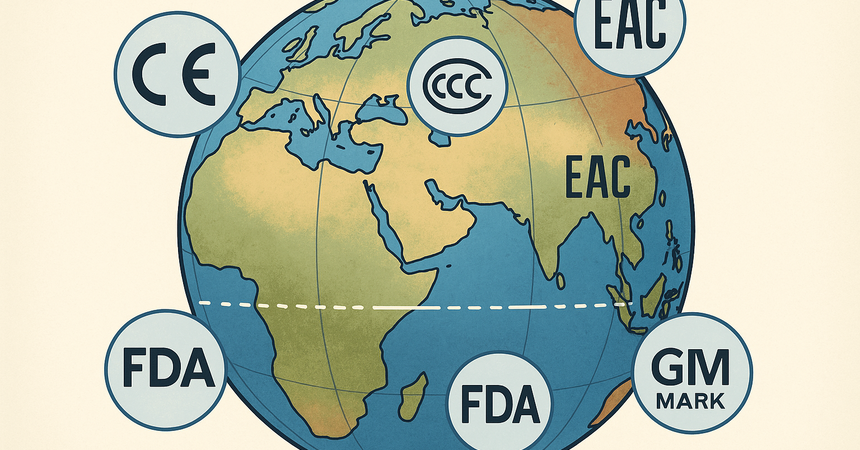Russian vs. International Certification: What’s the Difference?
Within Russia and the Eurasian Economic Union (EAEU), certification systems like TR CU (Technical Regulations of the Customs Union), GOST standards, and the EAEU mark are mandatory and harmonized across member states (Armenia, Belarus, Kazakhstan, Kyrgyzstan, Russia).However, outside the EAEU, these certificates are not officially recognized by most international authorities. This means:
- A GOST or EAEU certificate does not replace CE, UKCA, FDA, or other international approvals.
- TR CU documents are valid only within the EAEU.
- The EAC mark (Eurasian Conformity) is known globally, but it does not grant market access in the EU, US, Gulf countries, etc.
When Can Russian Certification Help Internationally?
Although Russian certificates are not a substitute for local approvals, they can still play a supporting role in some situations:- During supplier selection. International partners may request Russian documents as a proof of basic quality control.
- As part of dual certification. GOST or TR CU test reports may be used as a basis for CE, G-Mark, SASO, or other certifications.
- In CIS countries outside the EAEU. Some non-member states (e.g., Uzbekistan, Tajikistan) may accept Russian certificates under bilateral agreements or simplified procedures.
- In private B2B contracts. Some companies may include Russian certificates in technical specs as a quality benchmark.
When Are Russian Certificates Not Useful Abroad?
- When exporting to the EU, UK, US, Canada, Japan, South Korea, etc. — You must obtain local certifications (CE, UKCA, FDA, etc.).
- When national law requires domestic certification. For instance, Gulf countries demand G-Mark or SABER; China requires CCC; the US needs FDA or UL approval.
What Should Exporters Do?
- Identify the target country and product type.
- Research mandatory certifications for that market.
- Don’t rely solely on GOST or EAEU certificates.
- Obtain proper international certification (CE, FDA, UKCA, G-Mark, CCC, etc.).
Conclusion
Russian and EAEU certification is essential for domestic sales but insufficient for global trade. It can help establish trust or serve as a starting point — but to fully enter foreign markets, proper international certification is required.________________________________________
Avoid unnecessary delays and confusion — let Worldwide Bridge handle the certification process for you. We adapt your documentation, arrange testing, and obtain the right approvals for your target markets. All turnkey.
